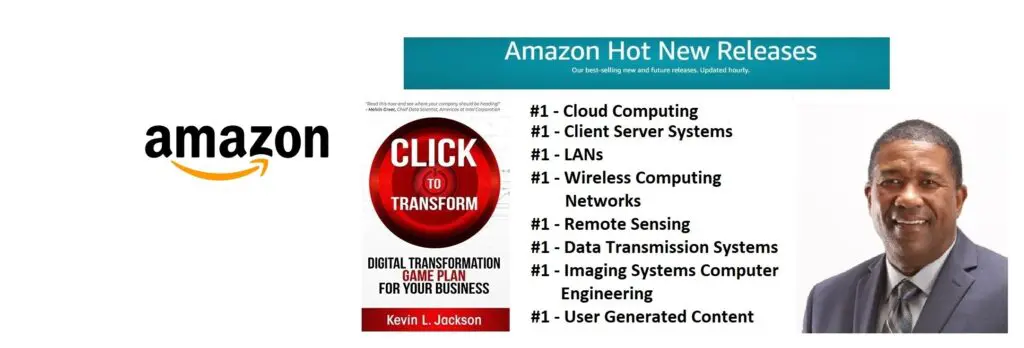Twitter Feed
Firebrand Announces 2017 Accelerated CloudMASTER® Dates
Firebrand, the leader in Accelerated Learning, has recently announced it’s 2017 delivery schedule for their accelerated CloudMASTER® training course. Delivered in partnership with Logical Operations and the NCTA, this unique…
TAP Accelerates Artificial Intelligence
Photo credit: Shutterstock Over the past few years, the use of artificial intelligence has expanded more rapidly than many of us could have imagined. While this may invoke fear and…
Cognitive on Cloud
Photo credit: Shutterstock According to the IBM Institute for Business Value the market will see a rapid adoption of initial cognitive systems. The most likely candidates have moved beyond descriptive…
Europe: NCTA CloudMASTER® Hotspot
The ongoing digital transformation continues to generate a steady demand for workers with increasingly sophisticated digital skills. This process is multi-dimensional and workers with these highly specialized skills are very…
Smart Manufacturing Is Cloud Computing
As cloud computing simultaneously transforms multiple industries many have wondered about how this trend will affect manufacturing. Often characterized as “staid”, this vertical is not often cited when leading edge…
George Youmans, Jr.: The CloudMASTER Fashionista!
So how could a NCTA Certified CloudMASTER accelerate his career in the fashion industry? To answer that question, you would need to catch up with George Youmans, Jr. He has…
Is Cloud Interoperability a Myth?
Photo credit: Shutterstock As the industry matures, cloud computing will increasingly rely on interoperability in order to grow and deliver more value to industry. Assuming this is a fact, what…
Should Data Centers Think?
As cloud computing becomes the information technology mainstream, data center technology is accelerating at a breakneck speed. Concepts like software define infrastructure, data center analytics and Nonvolatile Memory Express (NVMe)…
For Top Cyber Threats, Look in the Mirror
A recent report by Praetorian, a cybersecurity company headquartered in Austin, TX, focused on threats that resulted in data compromise or access to sensitive information. Based on a review of…
Your Choice: Cloud Technician or Digital Transformer
The CompTIA Cloud+certification validates the skills and expertise of IT practitioners in implementing and maintaining cloud technologies. This is exactly what it takes to become a good cloud technician. In…
The Achilles heel of every transformative business model is their reliance on ever increasing amounts of data that need to be transported quickly across wide area networks and processed at edge computing end points. To meet this expected demand, the global telecommunications industry is rapidly moving toward a future in which networks must have the agility, flexibility, and scalability to deliver aggregated capabilities through fully programmable networks.
Since the late 1970s, new generations of technology and wireless standards have been introduced every decade through the current transition between 4G and 5G capabilities. Limited data capability was provided using circuit-switching under the European Telecommunications Standards Institute (ETSI) Global System for Mobile Communications (GSM) standard. Improved data rates were brought to the market in the late 1990s by using 2.5G and 2.75G technology, which were named GPRS (general packet radio service) and EDGE (enhanced data rates for GSM Evolution). The introduction of the LTE network later set the standard for high-speed wireless communications on mobile devices and data terminals.
Historically, sovereign nations have managed their telecommunications networks as national assets.
The political negotiations that drove that history led to underlying technological choices and today’s
heated international competition around 5G network deployments. In fact, western nations fear that China’s Huawei Technologies’ dominance of 5G technology could give the Chinese government backdoor access to Western mobile networks and the application. This international competition will determine the availability of specific technologies and telecommunications resources in each geographic region.
For 5G networks, data transfer speed, volume, and latency depend on the spectrum bands used and the network usage context (fixed or mobile). MmWave spectrum is a high-frequency technology that lies between 30 GHz and 300 GHz. It is attractive because its shorter wavelengths create narrower beams, which provides better resolution and security for data transmission. A 5G mmWave system requires a significant infrastructure build but could reap the benefits of data transferred at up to twenty times the speed of current 4G LTE networks. MIMO (multiple-input and multiple-output) increases throughput by using high-quality signals to receive multiple data streams at a reduced power per stream. Massive MIMO can multiply the capacity of a wireless connection without requiring more spectrum, which could potentially deliver a fifty-fold increase in the future.
These network capabilities are substantially superior to previous wireless technology generations and have subsequently set off the rapid development of many new application requirements and functions. With this new infrastructure, application components are placed in an optimal location to use compute and data storage services of the distributed cloud. The distributed cloud approach increases capacity, availability, and coverage while also limiting data transfer requirements. A distributed cloud solution enables edge computing by using micro and small data centers. Application developers must learn how to exploit these new design requirements to deliver ever increasing value to their end users.
Learn more about digital transformation innovation: pick up a copy of my new book, Click to Transform!Â

Cloud Computing
- CPUcoin Expands CPU/GPU Power Sharing with Cudo Ventures Enterprise Network Partnership
- CPUcoin Expands CPU/GPU Power Sharing with Cudo Ventures Enterprise Network Partnership
- Route1 Announces Q2 2019 Financial Results
- CPUcoin Expands CPU/GPU Power Sharing with Cudo Ventures Enterprise Network Partnership
- ChannelAdvisor to Present at the D.A. Davidson 18th Annual Technology Conference
Cybersecurity
- Route1 Announces Q2 2019 Financial Results
- FIRST US BANCSHARES, INC. DECLARES CASH DIVIDEND
- Business Continuity Management Planning Solution Market is Expected to Grow ~ US$ 1.6 Bn by the end of 2029 - PMR
- Atos delivers Quantum-Learning-as-a-Service to Xofia to enable artificial intelligence solutions
- New Ares IoT Botnet discovered on Android OS based Set-Top Boxes
